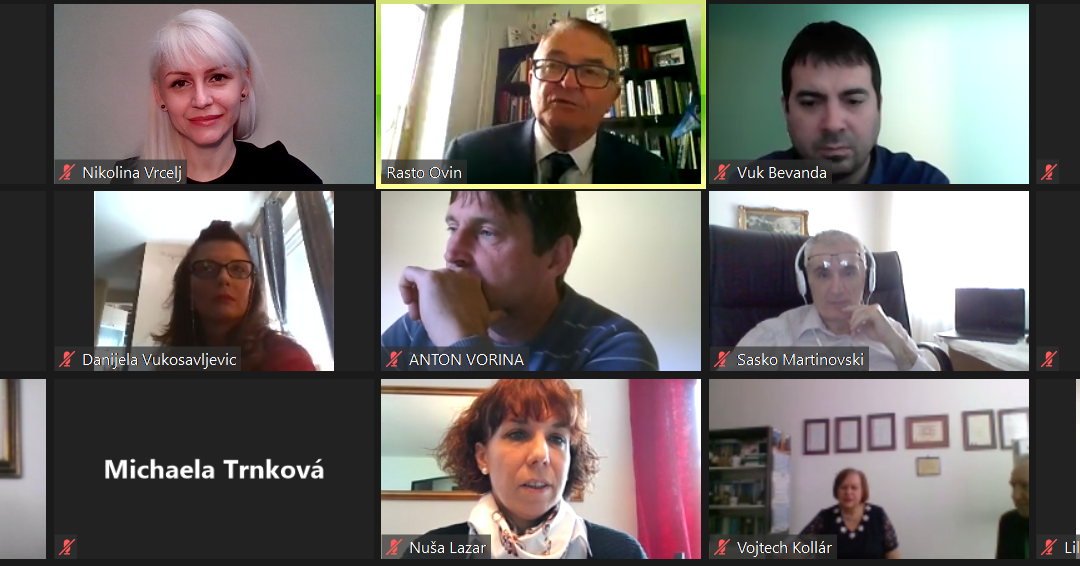Developing a Typology of Green Tourists. Empirical Study From Romania
Mirela Ștefănică – Alexandru Ioan Cuza University of Iași, Faculty of Economics and Business Administration, Department of Management, Marketing and Business Administration, 22 Carol I Avenue, 700505 Iași, Romania
Sandu Christiana Brigitte – Alexandru Ioan Cuza University of Iași, Faculty of Economics and Business Administration, Department of Management, Marketing and Business Administration, 22 Carol I Avenue, 700505 Iași, Romania
Keywords:
Green tourism;
Eco-types;
Consumer behaviour;
Participatory behaviour
Abstract: This study seeks to develop a typology of tourists according to their attitude and behaviour in relation to the natural environment. A survey was conducted on a sample of tourists in one of the representative natural tourist areas of Romania based on a face-to-face questionnaire. The typology of green tourists has been created based on 28 items measuring consumer or participatory behaviour. The study provides a segmentation of tourists into three eco-types: eco-destructive, eco-impartial, and eco-involved. These segments were analysed by gender, age and level of studies in order to observe specific similarities or differences set for each criterion. The main findings on the impact of tourist activity on the environment underline the importance for tourists to be more careful and concerned about solving the environment and enhancing green behaviour.


7th International Scientific ERAZ Conference – ERAZ 2021 – Conference Proceedings: KNOWLEDGE BASED SUSTAINABLE DEVELOPMENT, Online/virtual, May 27, 2021
ERAZ Conference Proceedings published by: Association of Economists and Managers of the Balkans – Belgrade, Serbia
ERAZ conference partners: Faculty of Economics and Business, Mediterranean University, Montenegro; University of National and World Economy – Sofia, Bulgaria; Faculty of Commercial and Business Studies – Celje, Slovenia; AMBIS University, Prague – Czech Republic; Faculty of Applied Management, Economics and Finance – Belgrade, Serbia
ERAZ Conference 2021 Conference Proceedings: ISBN 978-86-80194-46-2, ISSN 2683-5568, DOI: https://doi.org/10.31410/ERAZ.2021
Creative Commons Non Commercial CC BY-NC: This article is distributed under the terms of the Creative Commons Attribution-Non-Commercial 4.0 License (https://creativecommons.org/licenses/by-nc/4.0/) which permits non-commercial use, reproduction and distribution of the work without further permission.
References
Arnold, O., Kibbe, A., Hartig, T., & Kaiser, F. G. (2018). Capturing the environmental impact of individual lifestyles: evidence of the criterion validity of the general ecological behavior scale. Environment and Behavior, 50(3), 350-372. https://doi.org/10.1177/0013916517701796
Cheung, L. T., & Jim, C. Y. (2013). Ecotourism service preference and management in Hong Kong. International Journal of Sustainable Development & World Ecology, 20(2), 182- 194. https://doi.org/10.1080/13504509.2013.775192
Diminescu N., (2003) Descoperă natura de la informaţie la atitudine şi comportament ecologic, Timişoara, Mirton
Gaspar, R. (2013). Understanding the reasons for behavioral failure: A process view of psychosocial barriers and constraints to pro-ecological behavior. Sustainability, 5(7), 2960-2975. https://doi.org/10.3390/su5072960
He, P., He, Y., & Xu, F. (2018). Evolutionary analysis of sustainable tourism. Annals of Tourism Research, 69, 76-89. https://doi.org/10.1016/j.annals.2018.02.002
Holden, A. (2000). Environment and tourism. Routledge.
Kaiser, F. G., & Gutscher, H. (2003). The proposition of a general version of the theory of planned behavior: Predicting ecological behavior 1. Journal of applied social psychology, 33(3), 586-603. https://doi.org/10.1111/j.1559-1816.2003.tb01914.x
Lew, A. A. (2011). Tourism’s role in the global economy. Tourism Geographies, 13(1), 148-151. https://doi.org/10.1080/14616688.2010.531046
Li, Q., & Wu, M. (2020). Tourists’ pro-environmental behaviour in travel destinations: Benchmarking the power of social interaction and individual attitude. Journal of Sustainable Tourism, 28(9), 1371-1389. https://doi.org/10.1080/09669582.2020.1737091
Rainero, C., & Modarelli, G. (2020). The attractive power of rural destinations and a synergistic community cooperative approach: A “tourismability” case. Sustainability, 12(17), 7233. https://doi.org/10.3390/su12177233
Seddighi, H. R., & Theocharous, A. L. (2002). A model of tourism destination choice: a theoretical and empirical analysis. Tourism management, 23(5), 475-487. https://doi.org/10.1016/ S0261-5177(02)00012-2
Stefanica, M., & Butnaru, G. I. (2013). Approaches of durable development of tourism. Revista de Turism-studii si cercetari in turism, (15), 41-47. http://www.revistadeturism.ro/rdt/article/view/135
Stefanica, M., & Vlavian-Gurmeza, M. (2010). Ecotourism–model of sustainable tourist development. Studies and Scientific Researches. Economics Edition, (15). http://dx.doi. org/10.29358/sceco.v0i15.161
Suhel, S., & Bashir, A. (2018). The role of tourism toward economic growth in the local economy. Economic Journal of Emerging Markets, 10(1), 32-39. https://journal.uii.ac.id/JEP/ article/view/7714
Tapper, R., & Cochrane, J. (2005). Forging links between protected areas and the tourism sector: How tourism can benefit conservation. https://stg-wedocs.unep.org/handle/20.500.11822/8765
Theobald F.W. (1998) Global Tourism, Butterworth Heinemann, Great Britain

